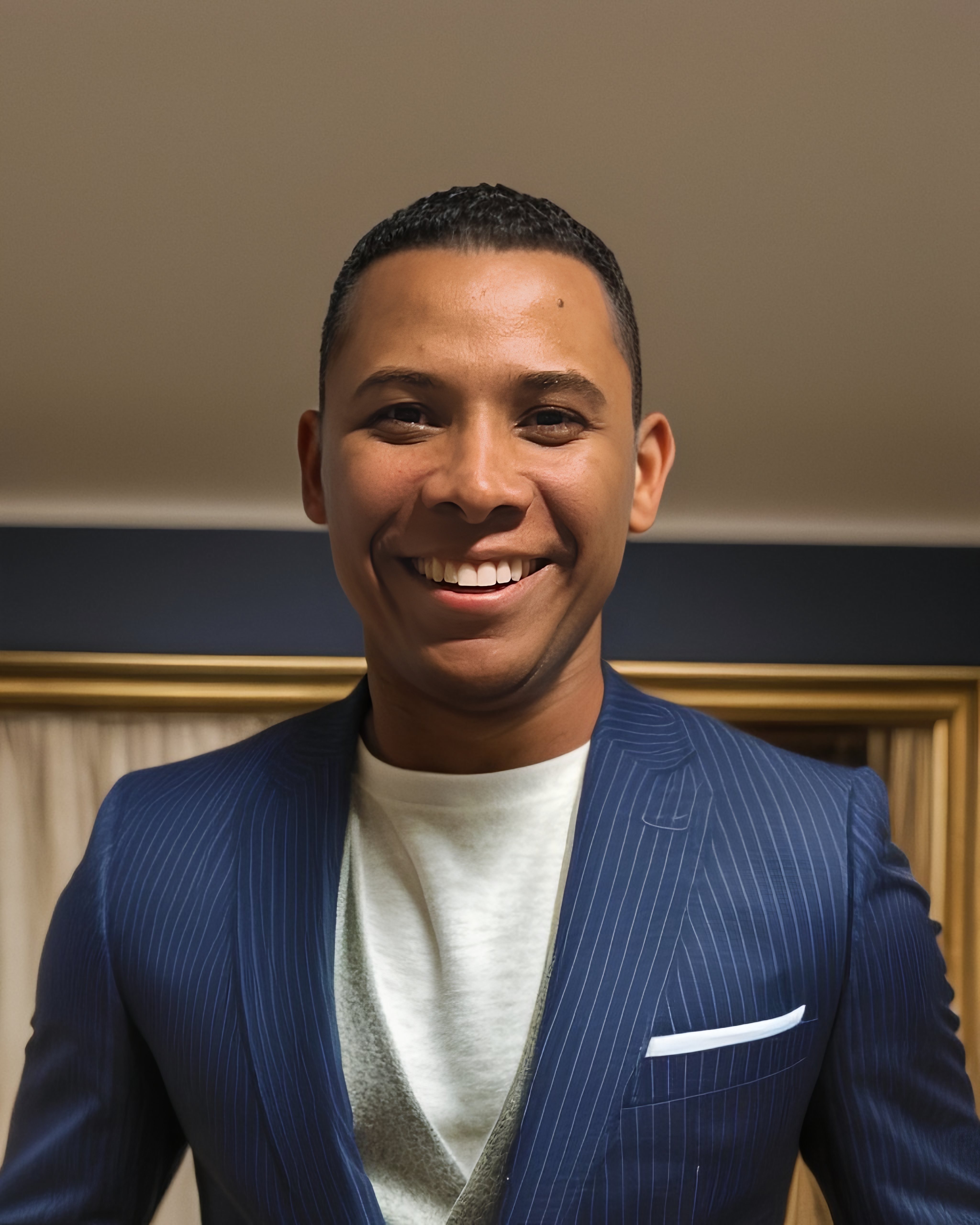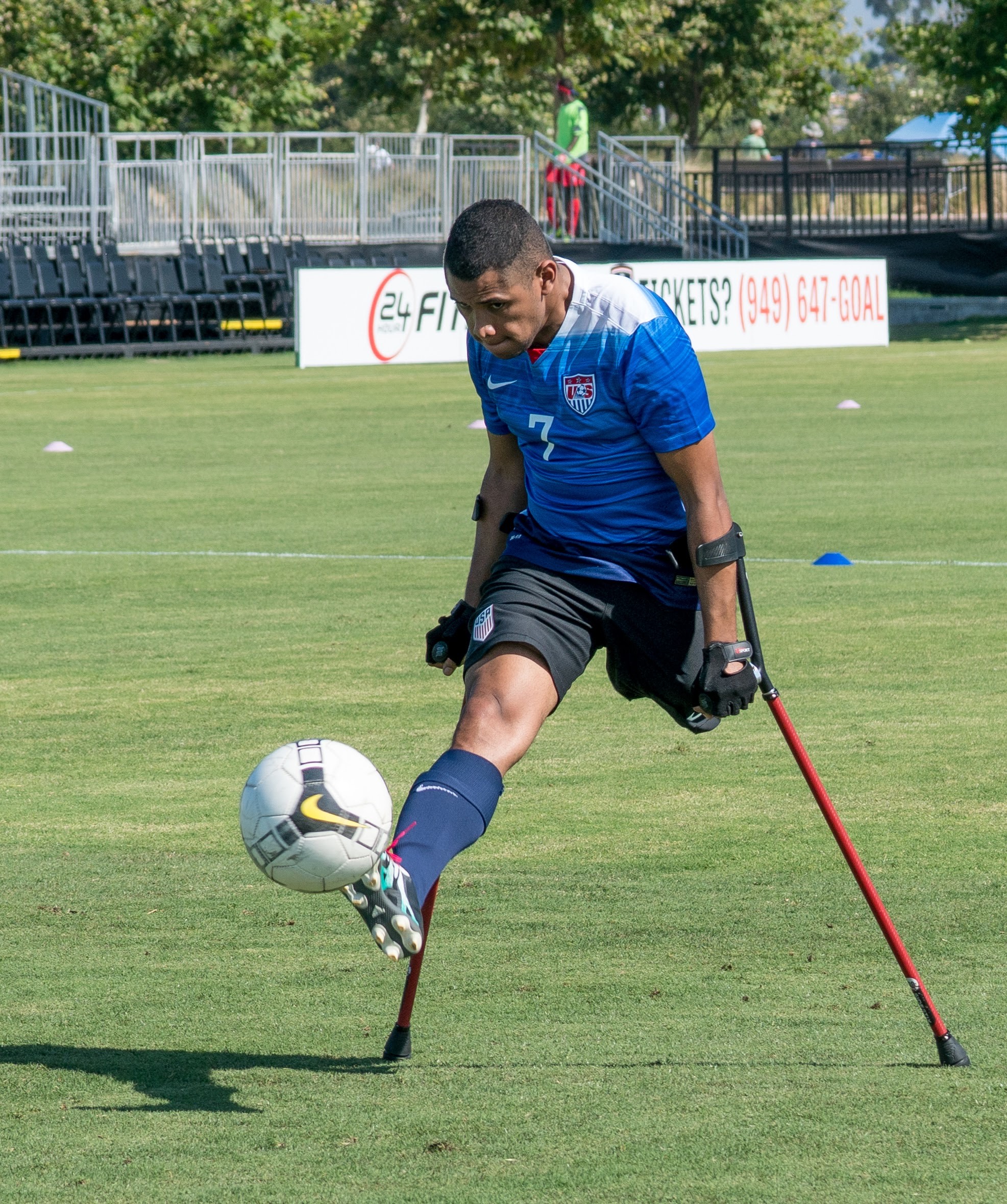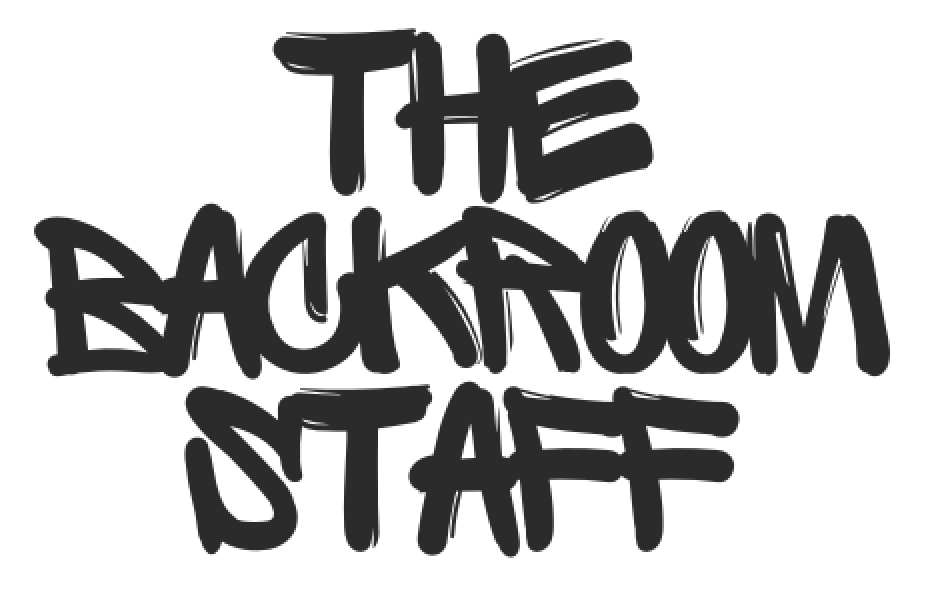The more people I meet and interview for this site, the more it’s clear football (and maybe sports in general) really is so much more than ‘a game’ to so many people and communities. There are so many people doing impactful work in so many different ways.
In this interview, Joan Bolanos Martinez shares his journey in amputee football, as a player on the US national team and now a board member at the United States Amputee Football Federation (USAFF). He then co-founded the United States Amputee Football Federation to grow the sport in the US and around the world, with a focus on community, inclusion, and local engagement.
Alongside Joan’s work and career in amputee football, he’s (checks list) been named to the Dean’s List at Columbia University, worked as a banker at JPMorgan Chase and most recently at Amazon among lots of other accomplishments. Some people are just really impressive!
The interview has been condensed and lightly edited for grammar and clarity.

[ Background ]
I’m originally from Venezuela. I started playing soccer when I was 5. Then in 2007, I had an accident and an infection and lost my leg. So I didn’t play soccer anymore.
In 2014 I moved to the US and got the great opportunity to be introduced to amputee soccer. I had no idea that amputee soccer existed before this. I started to train with the US national amputee soccer team. Alongside, I was going to school. I went to community college in Long Island, New York and then transferred to the city, to Columbia University, where I finished my bachelor’s degree in economics.
I was part of the national team until 2019 when I left. In 2020 I came back to support the organization that holds the U.S. National Amputee Soccer team. I did regional development and different training there and eventually became a board member.
In January 2023, I ended up co-founding the US Amputee Football Federation (USAFF). We have the mission and vision to use the sport, amputee soccer, to drive a little bit more diversity and inclusion around the world. We’ve been supporting some countries around the world. Actually in 2 weeks, our president is going for the second time to Ukraine to support women’s amputee soccer there. We would love to help organizations and countries - after we went to Ukraine last year, they ended up forming a national women’s amputee team - but it’s more of a by-product of helping them rather than trying to create any national team. Our organization is not looking to build a national team, that’s not our vision but we are happy to help. We’ve had great experiences introducing amputee soccer in Sierra Leone, Colombia, Mexico, in Australia during the FIFA Women’s World Cup.
"We have the mission and vision to use the sport, amputee soccer, to drive a little bit more diversity and inclusion around the world"
[ How did you find out about amputee soccer and end up on the national team? ]
That's funny and random, I would say sometimes life is. One of my prosthetic doctors in Long Island, he was like, “hey, you look very athletic, have you played any sports?”. I told him I used to play soccer but you know, after my amputation, I can’t anymore of course. He asked what I was talking about, there’s amputee soccer!
Anyway he knew the head coach of the national team and introduced me. For a year or so we built a relationship, I started training with the team and then joined ‘officially’ in 2016.
[ Were all the players from the New York area or spread out across the country? ]
They were from all over the place. I think one of the main challenges that amputee soccer has is the geographic area of the US, it’s massive. At the time we had a few from New York but others from Texas, Boston/New England, Colorado, California, etc. That was (and still is) a big challenge because, no one is getting paid for this and it’s not anyone’s ‘job’, you have people flying and taking time off work for training. It’s really hard and one of the big problems the board is facing.
[ Who did you play against? ]
We played games in preparation for the 2018 World Cup which was in California. We played teams like Haiti, England and Costa Rica. Another big challenge we’re facing though is there’s no league or tournament (besides World Cups).
There’s very little grassroots opportunity. That’s what we’re doing now with the USAFF. We’re supporting grassroots movements and focusing on local opportunities. For example in Texas, Texas is massive too but we can build scenes and teams in Dallas, in Houston, in Austin - that’s what we’re working on now.

[ You co-founded the United States Amputee Football Federation, can you tell me more about this, why you decided to make a new federation? ]
At that time, I started helping a friend publish a book about diversity in social media. I was writing about how we talk about disabled people and how that word has some negative connotations. I was thinking about how we can reframe this, so rather than being disabled, it’s more diverse abilities. Everyone has diverse abilities and we shouldn’t be judged by the abilities that someone has or doesn’t have. At that point, I was more focused on this.
Some former players and people that had been involved in different ways in the world of amputee soccer, approached me and said, “hey, we’re working on a project, it’s a grassroots movement!” They convinced me, and I really love the idea of supporting the whole project. I wanted to help people both here and around the world.
The idea of a global grassroots movement that can be a game changer for people in different countries. There are countries where medically disabled people 'seem’ like a ‘broken good’ and may not have the same value in society.
I saw many people that didn’t make it to the national teams but wanted to keep playing but we didn’t have the infrastructure. I’m using this sport to help give opportunities to these people to play as a means of distraction, for their mental health, to feel part of a community and to feel value in their lives.
So when I was tapped for this project, I was like, “let’s do it,” and I’m so happy. The accomplishments that we’ve had in a short period of time is amazing.
[ Is there any interaction/cooperation between USAFF and other organizations? ]
USAFF is an independent entity. Of course I still know lots of people from other organizations that I’ve known for a long time.
We have players who are part of other organizations as well - especially the women’s team - but we are happy to train them. For example, many of our camps are in Texas, so they get the opportunity to train with us because they can’t always travel to train with their team. Our doors are open for any person. We are focused more on the recreational aspect of the sport and playing for fun, for enjoyment and for community.
[ What is your role as a board member at USAFF - what are you responsible for? It seems like quite a small team right now? ]
I’m a board member and treasurer at USAFF. My day to day responsibilities include fundraising, partnerships and all the taxes and accounting.
I’ve been working with companies to find out how they can support us, financially or otherwise. I work on getting grants for the organization (USAFF is a 501(c)(3) non-profit organization). All these ‘boring’ things that you have to do - but it’s exciting at the same time because you know this will transform lives across the world.
For taxes, I’ve recruited an accountant who will do the accounting for us pro-bono and this model is something we are creating under each department. So even though there are only 4 or 5 people ‘running’ the organization, there are a group of people supporting us. For instance, we have an intern working on social media marketing and she’s also doing some work on the backend with our website.
We have a lawyer who is helping us with legal questions, especially about fundraising. We’re looking to develop more partnerships, like co-branded fundraising or scholarships - especially with universities. If a college could help give visibility, or even scholarships, it could be a game changer. So I’m working on some of these but the talks take a long time.
[ How do you & USAFF think about who you’re ‘targeting’? - i.e. kids, women, etc ]
Pretty much, we don’t have any age requirements. We have young kids, 7 or 9 or 13 years old who have started playing with us! What we would like to do is focus on the development of the sport at the youth level, especially a high school level.
At the beginning, we were more focused on targeting women and most of the things we do today is supporting women to play amputee soccer. But now, we decided hey, there’s a lot of people that are interested in playing so we ended up not putting any age or gender restrictions on our organization.
We’ve also worked with organizations like the Miracle League - a national organization that has leagues for soccer and baseball for people with developmental disabilities. We are partnering with them to start some co-ed games.
So we are working with organizations to help us support people of all ages to have this opportunity.
[ What are the ‘rules’ regarding amputations? ]
That's a great question, people have asked me how I can play with my prosthetic. Amputee soccer is played with crutches - so I take my leg off. For field players, anyone with a limb difference - this could be an amputation but it could also be ‘lower level’, for instance people born with a limb that didn’t develop fully. For goalkeepers, it’s the same but with the upper body - so an arm amputation or arm difference.
[ You mentioned partners like the Miracle League or Universities, who else are interesting partners for you? US Soccer, MLS teams, FIFA? How do you think about setting up a partnership? ]
Yes, definitely. FC Dallas and Houston Dynamo have been very generous since Day 1. While they cannot provide money, they have supported us with field space and awareness.
The reality is so many of these partnerships are still in the works and we can’t disclose them yet because there’s a huge legal portion - that’s why we had to get a lawyer! So the talks and even once it’s agreed, there’s a long wait before an official announcement because they are still working out all the details legally.
Each partnership is different too. The Performance Indoor Training (Frisco), for instance, they often don’t do cash donations but will donate things like field space - which is equivalent to cash but for them it’s easier to do it this way.
[ Are you working with other sports’ amputee organizations? ]
Yes - and not only in the amputee sports world but also other organizations that serve people who happen to have a disability.
One of the larger organizations in the world is CP soccer - Cerebral palsy soccer. I would say, they are maybe the ‘gold standard’ because they’ve successfully built both a strong grassroots movement and a national team structure.
At the end of the day, these organizations are also helping to bring diversity and inclusion to the diverse ability community, so we talk with them and we’ve been learning from them as well. Getting advice or suggestions about how to structure an organization, how to do things fast when you don’t have capacity or resources to do it by yourself - things like that.
[ What are your goals in the short and long term with the USAFF and for amputee soccer more broadly? - the Paralympics are of course happening now in France, is something like this a goal? ]
To be in the Paralympics, there are so many requirements and we don’t belong to the right organizations right now but I’d love to see amputee soccer as part of the Paralympics but it’s not part of our organization's vision.
My personal goal is I’d like to see amputee soccer presented in some capacity at the FIFA World Cup in the US in 2026. That’s my goal.
We’d love to have 1,000 or 2,000 players in the US and create lots of local teams, but we still have a lot of work to do!
"My personal goal is I’d like to see amputee soccer presented in some capacity at the FIFA World Cup in the US in 2026"
[ The Women’s World Cup is in Colombia in November, who is organizing this? ]
It’s organized through the World Amputee Football Federation (WAFF) - sort of like the ‘FIFA’ of amputee football.
We’re so proud and happy that we were there in Colombia supporting their first women’s amputee team and doing some training in March of 2023.
I don’t know the nitty gritty details because we aren’t part of WAFF as they only have national teams but some of our players are going to go over there. I don’t know in what capacity we will be going or supporting but we are trying to do anything we can to provide scholarship or financial support for the women to go there.
[ How can someone get involved or otherwise support your work? ]
We are looking for volunteers - there’s an application for volunteers on our site. We have different kinds of volunteers, including seasonal ones for students who help out over the summer.
We also look for donations. Of course financial support but it can be other kinds of donations. We’ve had photographers come to an event and donate their time and things like that.
Or you can always send us an email!
